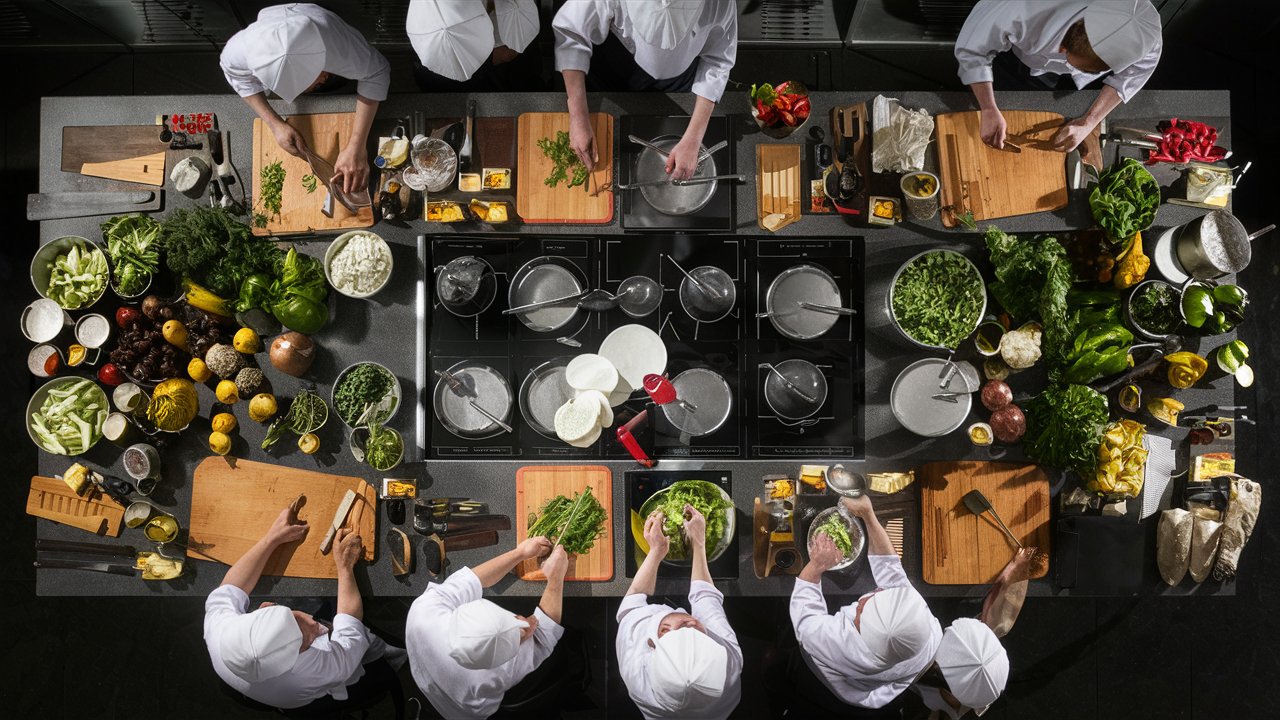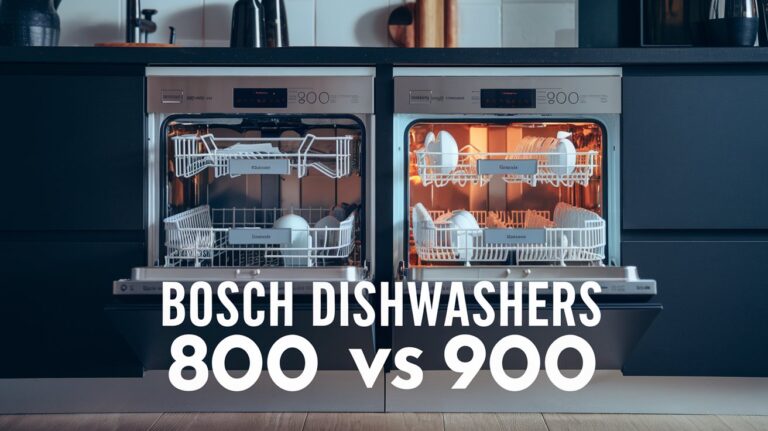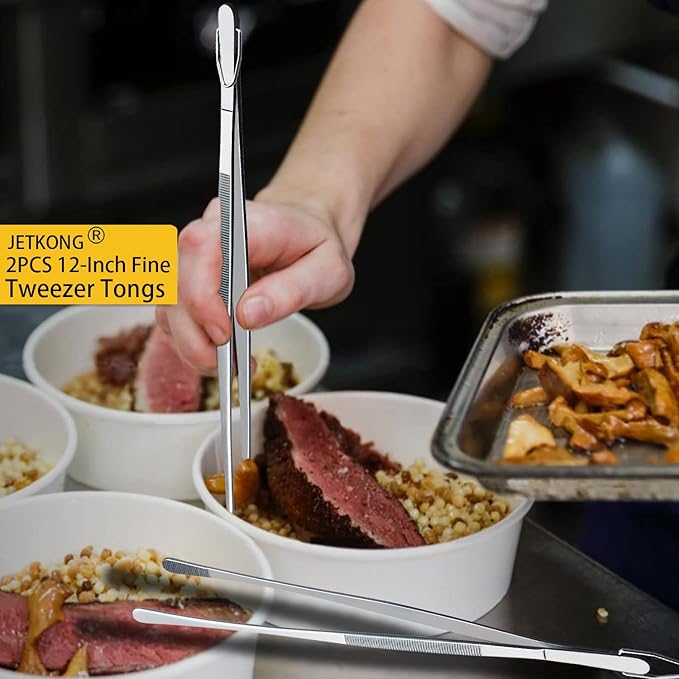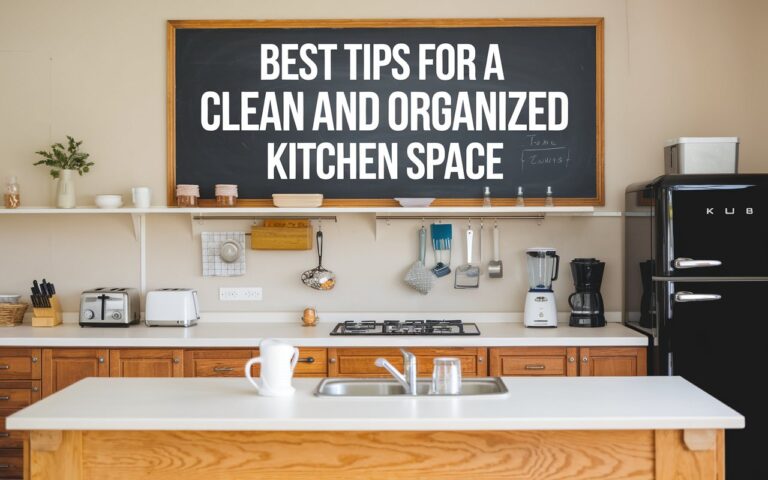Welcome to our comprehensive guide on managing kitchen work efficiently! Whether you’re a keen home cook or an expert chef, the art of running a kitchen easily is important for making lovely meals without stress.
From organizing your food store to learning time-saving cooking methods, this summary will set the platform for kitchen management success.
Stay adjusted as we discover the best practices that will help you juggle the various tasks related to kitchen work and transform your cooking experience into a smooth and fun process.
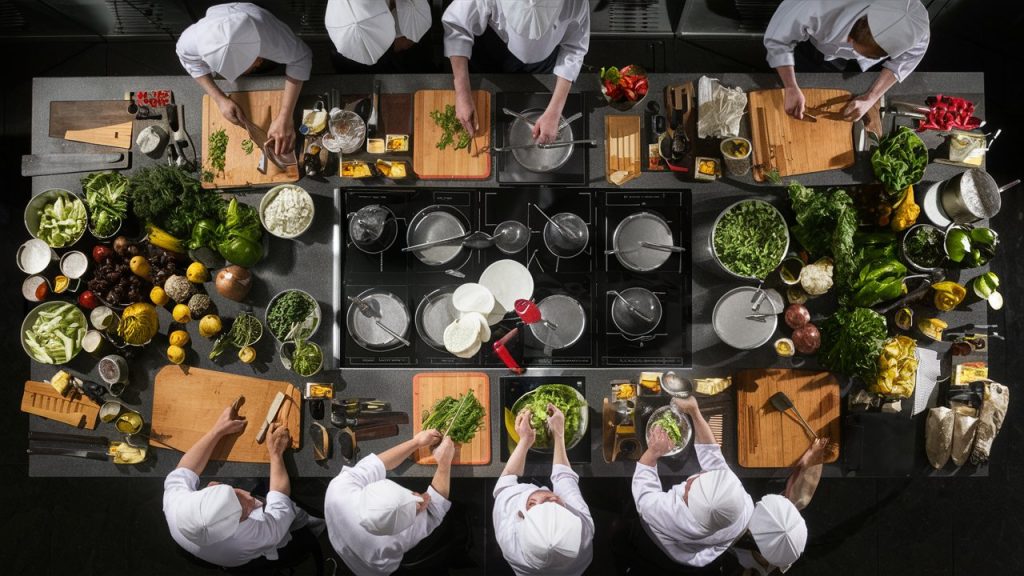
What Is Kitchen Management?
Kitchen management organizes and administers kitchen tasks to ensure effective operation. It takes in planning, managing, and finishing various activities such as meal homework, cooking, washing, and maintaining a portfolio. Effective kitchen management ensures smooth day-to-day operations and money the overall success of a restaurant or home kitchen.
What Does a Kitchen Manager Do?
A kitchen manager oversees all facets of restaurant kitchen operations, including food processing, cooking, and safety. They manage kitchen staff, create working hours, order supplies, and make sure the kitchen meets health and safety standards. Kitchen managers also create menus, check food quality, and organize with other teams to deliver high quality meals to customers on time.
Why Is Kitchen Management Important?
Right kitchen management is important for several reasons. First, it helps maintain food value and safety by ensuring proper handling, storage, and homework of parts. Second, it plays a key role in monitoring costs and dropping food waste by successfully managing inventory and minimizing overproduction. Moreover, efficient kitchen management tips to smoother operations, improved productivity, and better customer happiness.

Kitchen manager vs. chef
Though the parts of kitchen manager, cook, and line chef may join in some ways, they each have different responsibilities. A kitchen manager supervises the overall operation of a kitchen, then a chef is responsible for making menus and overseeing food preparation. Line cooks are normally responsible for preparing exact dishes or station tasks within the kitchen.

Kitchen Manager vs. Restaurant Owner
A kitchen manager and a restaurant owner are single roles, although they may be held by the same person in smaller formations. A kitchen manager focuses mostly on the day to day operations of the kitchen. At the same time, a restaurant owner directs all aspects of running a dining formation, including finances, marketing, and customer service.
Tips for Better Kitchen Management
- Plan Ahead: Proper planning is important for effective kitchen management. Create daily, weekly, and monthly plans to ensure tasks are completed powerfully.
- Communicate Effectively: Strong communication skills are important for successful kitchen management. Connect regularly with staff to make sure every person is on the same page and any issues are addressed quickly.
- Organize Your Space: A clean and well-organized kitchen is serious to efficient operations. Store all tools, utensils, and ingredients in chosen areas for easy access.
- Simplify Processes: Look for ways to simplify processes in the kitchen. This could be applying time saving cooking techniques or operating technology to track inventory and orders.
- Invest in Training: If ongoing training opportunities for staff can improve their skills and good organization in the kitchen and help foster a positive work background.
- Regularly Review Menus: Keep your menus fresh and informed by at times reviewing them with your chef or team. This will ensure mutually popular and profitable dishes, which is essential for a popular kitchen.
- Be Adaptable: Startling positions can arise in a fast paced background like a kitchen. Being flexible and making quick decisions is crucial for actual kitchen management.
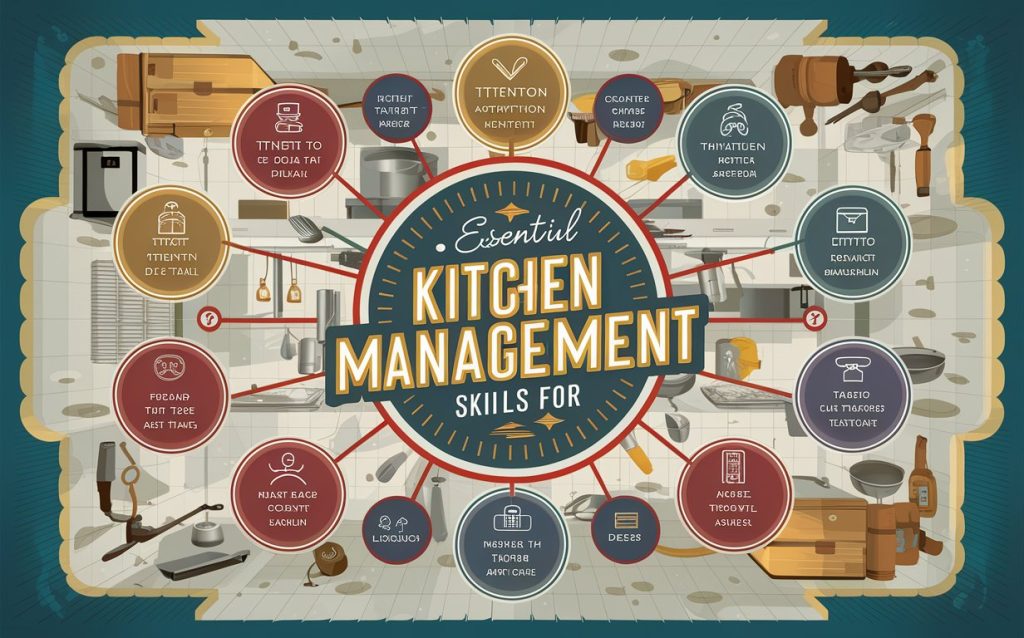
Kitchen Management Skills You Need to Succeed
Learning how to manage a restaurant kitchen requires these essential skills:
- Attention to detail
- Communication
- Leadership
- Menu planning
- Creativity
- Culinary arts
- Kitchen staff supervision
- Food safety
- Inventory management
- Kitchen Management
- Organizational skills
- Time management
- Conflict management
- Customer service
- Keep calm under pressure
- Kitchen equipment
- Problem-solving
- Cleanliness
- Cost control
- Interpersonal communication
- Maintaining hygienic and safe kitchen practices
- Ability to work under pressure
- Financial knowledge
- Organization
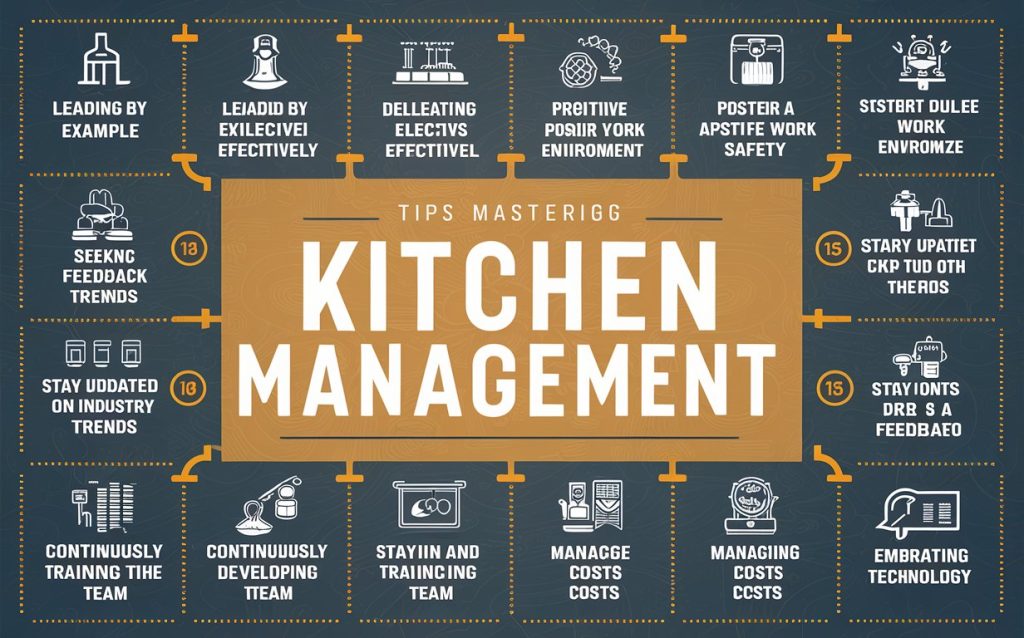
Tips for Mastering Kitchen Management
Successful kitchen management wants strong leadership skills, real message, organization, and flexibility:
- Lead by Example: As a kitchen manager, setting a good example for your team is essential. Display up on time, keep a helpful method, and have a strong work knowledge.
- Delegate Effectively: Delegating tasks to your team is essential for managing the workload efficiently. Make sure every person knows their exact responsibilities and has the basic training to complete them.
- Prioritize Safety: Safety should always be a top priority in the kitchen. Make sure your team is an expert on correct rules and that all tools are regularly maintained.
- Foster a Positive Work Location: A favorable work Location can lead to happier staff, better communication, and increased productivity. Inspire open communication, provide growth opportunities, and categorize and return hard work.
- Seek Feedback: Commonly seek feedback from your team, customers, and other stakeholders to understand what works well and where increases can be made. Use this feedback to continually improve your kitchen management strategies.
- Stay Up-to-Date on Industry Trends: Staying knowledgeable about current trends in the food industry can help you stay ahead of the competition and keep your menu and operations fresh and relevant.
- Continuously Train and Develop Your Team: Ongoing training for your team can improve their skills, boost morale, and lead to a more efficient kitchen. Aspect for chances to offer workshops, join sessions, or take in outside experts for specific teaching.
- Stay Organized: A cluttered and disorganized kitchen can lead to chaos and inefficiency. Confirm your kitchen is organized and all person knows where items are kept.
- Manage Costs: Protecting expenses, monitoring expenses, and managing costs effectively are crucial to maintaining profitability in the kitchen. Regularly review food budgets, work budgets, and other operative costs to identify areas where funds can be made.
- Embrace Technology: Technology can be a valuable device in modern kitchen management.
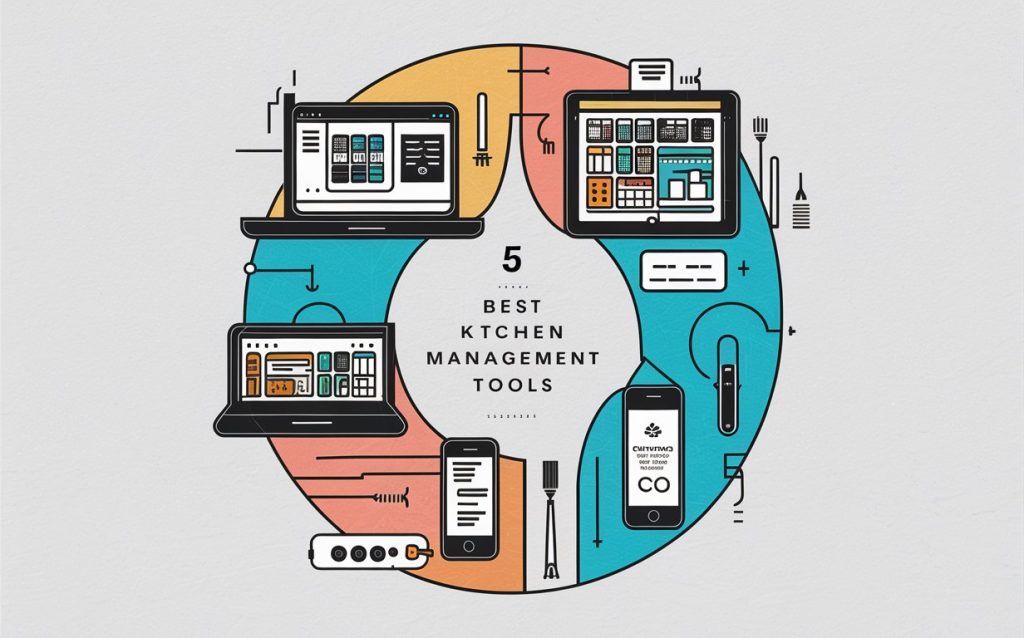
5 Best Kitchen Management Tools
- Inventory Management Software: Spending software to track inventory ranks and food costs can help ease waste and simplify ordering processes.
- Kitchen Display Systems: These systems display tips as they come in, allowing for improved communication between kitchen staff and front of house teams.
- Recipe Costing Tools: Calculating the cost of makings in a dish is fundamental for maintaining profitability. Recipe costing tools can help with this method.
- Communication Apps: A communication app like Slack or Trello can improve statements and organization within the kitchen group.
- Temperature Monitoring Systems: The right food temperature is dire for food safety. Temperature monitoring systems can track heat in real time and alert staff to any issues.
What to include in your kitchen business plan
If you’re opening a kitchen created business, it’s important to have a hard plan in place. Your business plan should include information on your target market, competition analysis, commercial estimates, and marketing plans. It should also outline your menu and pricing building and any unique selling facts for your business.
Best Kitchen Management Software
Kitchen management software is a valuable tool for streamlining processes and increasing good organization in the kitchen. This software can support various tasks such as portfolio management, recipe costing, employee planning, and client orders. Some popular kitchen management software options include Chef Tec, Kitchen CUT, and Blue Cart.

The average salary of kitchen managers
According to the Office of Work Numbers, the normal salary for a kitchen manager in the USA is $52,160 (Just Idea) per year. However, earnings can vary depending on site, type of founding, and experience level.
Kitchen managers may also accept additional benefits through bonuses or profit sharing programs. Also, expert kitchen managers can advance within the food industry by attracting head chefs or opening their own restaurants.
If you need kitchen accessories love-gadgets is a best shop.
FAQs about Kitchen Management
What skills are essential for a kitchen manager?
Budget management, food care knowledge, problem solving, multitasking, care to detail, and flexibility are all important for successful kitchen management.
How can technology help with kitchen management?
Technology can assist with various kitchen tasks, including inventory management, communication, and temperature monitoring. It can also help streamline processes and increase efficiency.
What are some common challenges in kitchen management?
Some common challenges in kitchen management take in maintaining food quality and consistency, handling costs, statement problems between the front of house and back of house teams, and staffing or scheduling problems.
How important is customer service in kitchen management?
Customer service is essential in kitchen management, as it can impact customer approval and loyalty. Kitchen managers should arrange to create a positive customer dining experience through well-organized service and regularly high quality food.
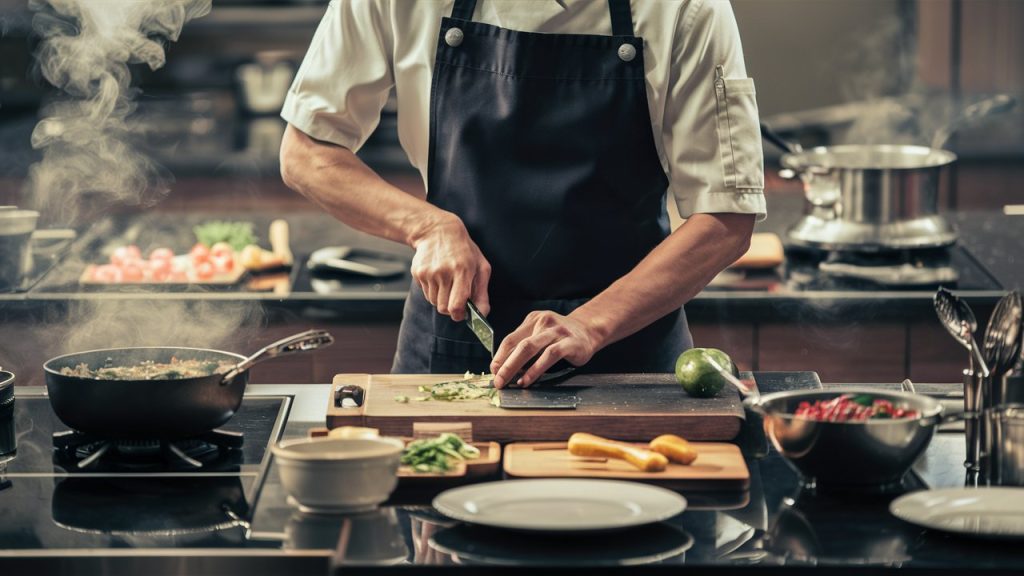
Wrapping for Kitchen Management
Effective kitchen management is important for the success of any kitchen based business. You can run a smooth and efficient action by using tools, staying organized, developing a positive work environment, and nonstop seeking feedback and training opportunities. As well, keeping up with industry trends and approved technology can help set your kitchen apart from competitors.
Remember to arrange safety, quality, and customer happiness in all aspects of your kitchen management strategies. So, it is important to have a solid plan and continuously evaluate and improve your processes to ensure success.
With these tips and tools, you can master the art of kitchen management and run a successful business. So, start planning and applying these strategies today for a thriving kitchen operation tomorrow! Happy managing!😍
If you want to decorate your kitchen more standard, then you can read our Blogs.

